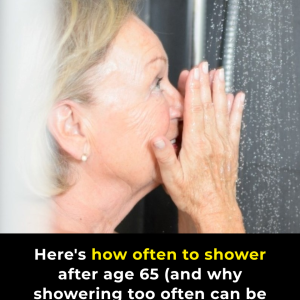
Do you ever wake up with your pillow a little damp and wonder if that’s normal? Don’t worry — you’re far from alone!
This small nighttime “incident,” often seen as embarrassing, is actually very common — and more importantly, it can be a sign of deep, restorative sleep.
A Natural (and Actually Positive) Phenomenon
Drooling in your sleep is a completely normal physiological reflex.
It happens when your body reaches a state of deep relaxation — your heart rate slows, your breathing steadies, and your muscles loosen up.
In this total state of letting go, your jaw drops slightly, your tongue relaxes… and a bit of saliva escapes.
Far from being a problem, this is actually a good sign: it means your nervous system is balanced and your body feels safe enough to fully recharge.
What Sleep Specialists Say
According to sleep experts, drooling during the night can indicate that your sleep cycles are in harmony and that you’re getting quality rest.
It’s your parasympathetic nervous system — the one responsible for relaxation and recovery — doing its job.
When it functions properly, it helps your body regenerate, balance hormones, and repair muscles.
In short: if you drool a little, it’s a sign your body is truly relaxing the way it should.

Why Do Some People Drool More Than Others?
There are many — and mostly harmless — reasons:
- Sleeping position: Sleeping on your side or stomach naturally makes it easier for saliva to flow out.
- Mouth breathing: A stuffy nose or mild allergies can make you breathe through your mouth instead of your nose.
- Muscle relaxation: The deeper your sleep, the more your facial muscles relax.
That’s why “good sleepers” often drool more — it’s a sign their body feels comfortable and completely at ease.
When Should You Be Concerned?
In most cases, it’s nothing to worry about.
However, if drooling becomes excessive or is accompanied by:
- loud snoring,
- frequent sore throats,
- constant fatigue upon waking,
it may be worth consulting a doctor. These symptoms could point to disrupted breathing during sleep. But in most cases, a small adjustment in sleeping position or a quick check-up is enough to restore balance.

Simple Tips for More Comfortable Sleep
If that damp spot on your pillow bothers you, try these easy fixes:
- Sleep on your back to reduce saliva flow.
- Slightly elevate your head to make breathing easier.
- Stay well-hydrated during the day to keep saliva thin and light.
- Choose a cotton or bamboo pillowcase — they’re more breathable and easier to wash.
Small habits like these can make a big difference in your nighttime comfort.
In Short: Nothing to Worry About — Quite the Opposite!
Drooling at night is, above all, a sign of deep, restorative sleep.
So instead of being embarrassed, take it as proof that your body is doing exactly what it should — relaxing, recovering, and recharging.
Your pillow doesn’t lie: you’re sleeping like a baby!




